Master Ratan

Subscribe to read full article
This section is for paid subscribers only. Our subscription is only $37/- for one full year.
You get unlimited access to all paid section and features on the website with this subscription.
Not ready for a full subscription?
You can access this article for $2 , and have it saved to your account for one year.
- Real Name: Syed Nazir Ali Rizvi
- Born: 21 August 1942 (Ajmer, India)
- Died: 12 December 2016 (USA)
- Primary Cinema: Hindi
- Parents: Syed Abbas Ajmeri
Among the most sought-after child artistes in the Bombay film industry in the 1950s, Ratan Kumar was known for films such as Phool Aur Kaante (1948), Ashiana (1952), Do Bigha Zamin (1953), Boot Polish (1954), Jagriti (1954), Sangam (1954), Garam Coat (1955), Mere Lal (1966), Ankhen (1968), Ganwaar (1970), Chhoti Bahu (1971), Mela (1971), Suhaag (1979), and more. He featured in the iconic song Nanhe munhe bachche teri mutthi mein kya hai from Boot Polish. Later, migrating to Pakistan, he achieved some measure of success in the Pakistan film industry, transitioned to lead roles at 18, and also made his debut as director with Daastan (1969), choosing to quit films in the mid-1970s.
Son of Syed Abbas Ajmeri, an actor and producer, he was born Syed Nazir Ali Rizvi on 21 August 1942 in Ajmer. With the family moving to erstwhile Bombay, his voice and innocence proved to be made for child stardom. Entering films as a five-year-old, he was selected by filmmaker Krishan Chander, who was scouting for a child artiste for his film Raakh. Being a friend of the family, young Syed was signed on for the role. He acquired the name Ratan Kumar as his stage name on the advice of actor Prem Adib. The name happened to be that of a character that Adib had played in an earlier film.
While he didn’t become an overnight success, gradually, with more films and experience, he grew into a prominent child actor, working with some of the greatest names of the era including Meena Kumari (Baiju Bawra 1952), director Bimal Roy (Do Bigha Zamin 1953), Raj Kapoor (who produced his famous 1954 film Boot Polish), Santosh Kumar (Bedari, 1957), Nargis (Angaray, 1954), Madhubala (Buhat Din Hoye, 1954), and Baldev Raj Chopra (Yash Chopra’s elder brother).
For the 1952 musical mega hit Baiju Bawra, the makers had conducted a country-wide search before choosing Kumar for the role of the young ‘Chote Baiju’ in the Vijay Bhatt directorial. The film merges the legend of Baiju Bawra with the historic setting of Mughal Emperor Akbar's court in India. Baiju (played by Kumar) is the son of a musician who also grows up to be a musician (Bharat Bhushan). He comes to believe that Tansen, the famed musician at the court of Akbar, is responsible for his father's death. The film then follows Baiju's attempt to avenge his father's death by challenging Tansen to a musical duel.
Do Bigha Zamin saw Kumar selected by the auteur Bimal Roy to play the young Kanhaiya, child of Shambhu Maheto (Balraj Sahni) and Parvati (Nirupa Roy) in the film that is considered a trend-setter and an important work in the early parallel cinema of India. Its socialist themed story revolved around a poor farmer who becomes a rickshaw-puller in Calcutta and faces many difficulties in the hope of earning enough money to pay off his debts and save his land.
The Hindi comedy-drama Boot Polish (1954) directed by Prakash Arora and produced by Raj Kapoor saw Kumar and Baby Naaz cast in the lead roles as Bhola and Belu respectively. The film, which won best film at the Filmfare awards, told the tale of two orphans who are forced by their abusive aunt to beg in the streets of Bombay. They take up shining shoes to earn an honest living but are separated by the coming of the monsoons.
The same year, he also starred alongside Rajkumar Gupta, and Abhi Bhattacharya in Jagriti (1954), directed by Satyen Bose based on the 1949 Bengali film Paribartan that Bose had also directed. Winner of the Filmfare for best film, Jagriti went on to be considered one of the best children-centric films of India. The plot revolved around a rebellious lad, who, sent to a hostel as a punishment, leads a revolt and creates havoc in the institution.
After Partition, Kumar stayed on in India with family; however, they migrated to Pakistan in 1956. Kumar’s brother Wazir Ali, who was an established producer and director, would go on to establish their own production house Film Hayat. Putting to advantage their fan base and strong work experience gained in India, they produced the first film under their banner titled Bedardi. The Urdu black and white film with a cast that includes Kumar, Santosh Kumar, Ragni, Meena Shorey, Bibbo and Lehri, was based on Kumar’s 1954 Indian national award-winning Satyen Bose film Jagriti. It featured Kumar, two years older and leaner, singing a song that was near-identical to the hit number Aao bachon tumhe dikhayein in the same tune and location but with the words and the sites being visited changed in the new version Ao bachcho saer karaein tumko Pakistan ki.
At age 18, Kumar transitioned from child artiste to lead hero, starring opposite Neelo in the Pakistani fantasy musical film Nagin (1959). Directed by Khalil Qaiser, it was produced by Wazir Ali under the Films Hayat banner. The film won a Nigar award in the category of best director, and reportedly also completed its golden jubilee at the box office, doing an all-time record business.
In a scenario common to many child artistes, Kumar’s initial success did not translate well into his adult years. Despite performances that were appreciated and a few more hits, he did not scale the heights of popularity he had achieved as a child actor. In an interview conducted later in his career, he would share, “Everyone has ups and downs in their career. When I started out, I was young. I didn’t know what I was doing. But as I grew older, I started understanding how it works. When it comes easy to you, you don’t learn. That’s why I teach my children not to take anything for granted.”
He also revealed, from his early days in the film industry, “Everyday was different. Every day, we were dealing with a new situation. That’s how it is on a film set. You learn with each film. I personally learned a lot from Bimal Roy.”
In 1969, he made his directorial debut Daastan, which he also produced and acted in under his real name. The cast included Ghazala, Aliya, Shakeel, Nanha, Saqi, and Zeenat.
Kumar continued to act sporadically in film until the 1970s. In 1977, a personal tragedy struck with his four-year-old daughter perishing in an accident in Lahore. After this personal loss, he did not want to have anything to do with the film industry and quit the business.
In the late 1960s, he started working for National Carpets. He travelled to countries like Germany selling Oriental carpets. Eventually, he settled down in the US, never to return again.
The bonds that tied him to certain personalities in the film industry endured and around 1983, he connected with filmmaker Raj Kapoor, who was in New York for a film shoot. At the behest of Kapoor, who recognised him instantly, he travelled from New Jersey, where he resided at the time, to meet with the maker of his childhood hit Boot Polish. Kapoor reportedly asked Kumar to come back to India, saying, ‘Your films are as fresh in people’s minds as they were in 1950s’.
Despite suffering from ill health post 1996, including lung collapse and a coma, following which he was on constant portable oxygen tank support, Kumar was non-complaining. As he put it in an interview in The Express Tribune, “Why do we complicate life? It’s simple. If we try to understand it, it’s quite simple. I take every day as the last day of my life and enjoy it as much as I can. Jo ho gaya so ho gaya (What’s happened is over). I’m really blessed that I achieved all that I could, and I’m just thankful to Allah for all he has given me.” He spent his days trying to relax and reflect, and also writing poetry occasionally.
Ratan Kumar passed away on 12 December 2016 in California, USA. He was 74. His survivors included two sons, a daughter and seven grandchildren.
References
https://tribune.com.pk/story/1261787/ratan-kumar-pakistans-famous-child-actor-1950s-passes-away/
https://web.archive.org/web/20170619073239/http://pakfilms.net/artists/details.php?pid=3121
https://tribune.com.pk/story/1261787/ratan-kumar-pakistans-famous-child-actor-1950s-passes-away/
-
Filmography (14)
SortRole
-
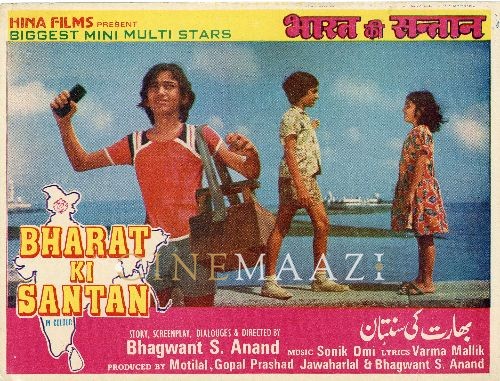
Bharat Ki Santan 1980
-
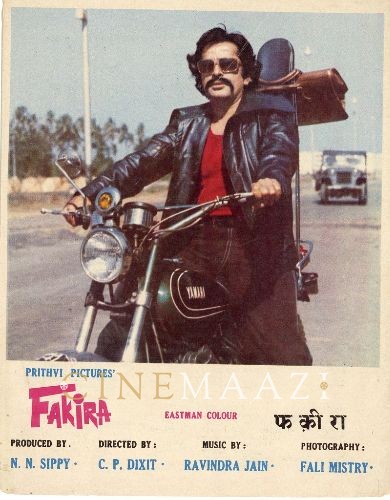
Fakira 1976
-
Teri Meri Ik Jindri 1975
-

Badnaam 1975
-
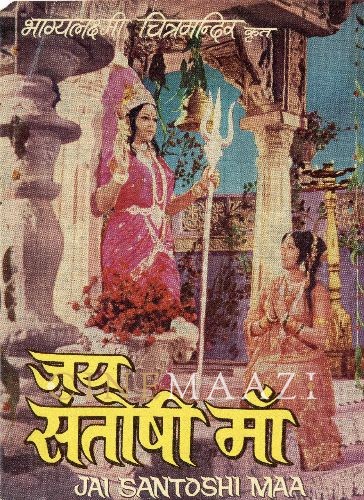
Jai Santoshi Maa 1975
-

Chalaak 1973
-

Dur Naheen Manzil 1973
-

Ek Nari Do Roop 1973
-
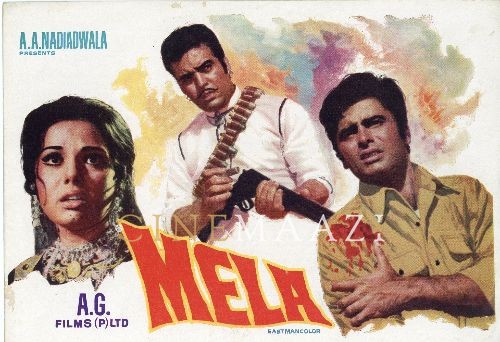
Mela 1971
-
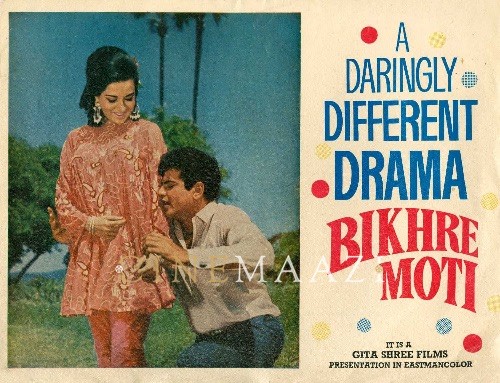
Bikhare Moti 1971
-

Maa Ka Aanchal 1970
-






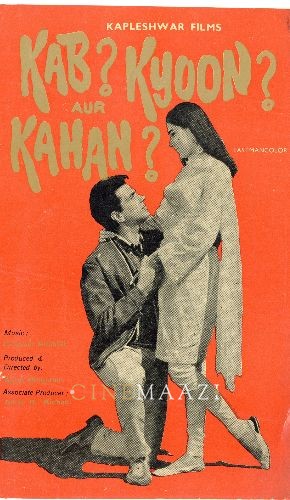


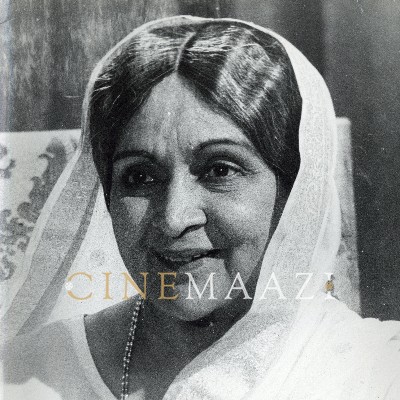
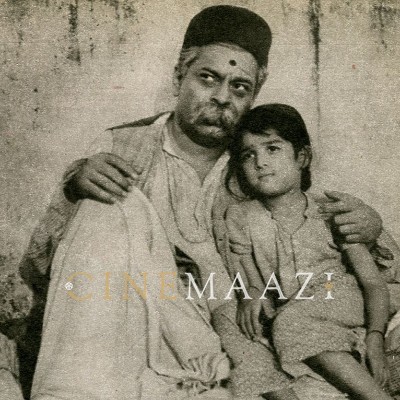


.jpg)



